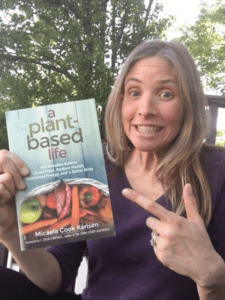
Curious about the steps to get a book deal?
I held a free Q&A call on How to Write a Book Proposal today and a more step-by-step free training last week entitled Fast Track Your Book Proposal.
There were such great questions about the process and I realized an overview of the steps to get published and get a book deal would be instructive: how it can work, how to make it work for you, and how to improve your chances of getting a great book deal.
While I have numbered these steps to get a book deal, the order is approximate and many of these steps will overlap.
- Your Book Concept: Get clear on your vision, readers, book content, features, what it’s not, structure.
- Get Feedback on above from target market, coach or editor, or trusted colleagues.
- Write Your Proposal: This post gives specific support on how to write a book proposal.
- Get feedback from agents or acquisitions editor at a conference; book proposal coach or editor.
- Obtain foreword writer, endorsements, written agreement for bulk sales from companies or organizations for which you provide trainings. These are all things that can help interest agents and publishers; they are worth the time to obtain. Foreword writer and endorsers may want to see some portion of your proposal, such as list of chapters and sample chapters before committing. Also, research whether friends can help introduce you to potential endorsers.
-

Dr. Pat Hoy with “Arts Awareness” published by GIA. Work on platform throughout the process: branded website, growing mailing list and social media following; be a good community/team player and support colleagues on social media; set up speaking engagements, training, etc.
- Research potential agents and/or publishers. Excellent resources include Pubmatch, Writer’s Digest, and Jeff Herman’s Guide to Book Publishers, Editors and Literary Agents.
- Once your proposal and sample chapters are done, write query letter.
- Edit query letter and proposal; it’s optimal to use a professional book proposal editor/coach for maximum impact. Multiple passes are recommended for both the body of the proposal and your sample chapters. Most professional writers revise multiple times, not just once or even twice.
- Look up submissions requirements on each agent’s or publisher’s site. You do not necessarily need to customize the proposal to the exact section titles or format on each site. Just make sure your submission includes all the things they are asking for.
-

Cara Bradley on break from recording the audio for On The Verge, published by New World Library Send query. Mostly this is by email. Usually I advise starting with agents, rather than publishers, but if your platform is quite small and you plan to send to smaller, niche publishers, you may start with the publishers themselves. Ocassionally, a professional or university press invites a proposal without the need for an initial query. Instead, you can turn your query email into more of a cover letter email.
- Send proposal to those who invite you to send based on the query. Generally, I recommend sending to 2-3 agents at a time. Let them know that you have sent to other agents.
- If you get any rejections, ask for feedback. The feedback is very valuable and can help you improve the next iteration or even change the book concept to be more marketable. Be open to exciting and fresh ideas.
-

Author Craig Malkin’s Daughters with Rethinking Narcissism, published by HarperWave Revise proposal, if needed. Submit to new agents/publishers.
- If you don’t hear back from an agent within 3-4 weeks of sending the proposal, feel free to contact him or her and make sure they received the proposal; ask where they are in the process.
- If you get an offer (either for representation by an agent or for publishing by a publisher), you can recontact the other agents/publishers and let them know you have an offer and would like to hear from them soon if they are also interested. Feel free to give them a deadline or ask them to let you know how soon they can get back to you.
- Get help with negotiating your contract. If you don’t have an agent, see if one will represent you. Alternatively, an intellectual property attorney, particularly one familiar with book contracts, is ideal.

On today’s call I talked about some of the ways to implement these steps to get a book deal and become a published author. I also answered many questions on book proposals for how-to and self-help books and memoirs, how they differ from each other, particular things agents and publishers are looking for, mistakes that will get your proposal quickly discarded, best places to meet agents in your genre, how to calculate your publishing budget, how some of my clients have grown their platform on a shoestring budget, and more.
You can listen to both today’s Q&A call and last week’s training on this page that describes my upcoming Fast Track Your Book Proposal Program.
On today’s call I shared a discount code you can use to save 10% on the program. I’m happy to explore with you to see if the Fast Track Your Book Proposal Program is an optimal fit for you and also whether your book and platform sound marketable enough to interest publishers, so you can make the most informed decision on this possible investment. Feel free to email me to set up a time to talk.
This program could be the catalyst to help clarify your book concept, write a great proposal, land an agent and publisher and become a published author! Is it? Let’s explore!
I’m happy to answer questions on this post, but also feel free to contact me for more support in your decision making!

